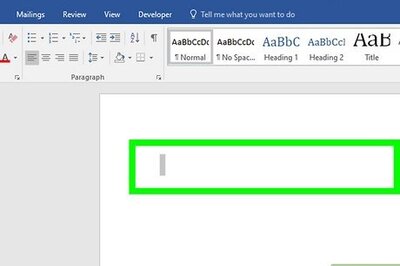
views
Quest Alliance, a non-profit organisation committed to revolutionising education and youth development, with a 15-year legacy in the education and skills sector, has garnered significant support from corporate social responsibility (CSR) initiatives. Companies such as Accenture, IBM, JP Morgan, Cisco, and Bank of America contribute to Quest Alliance’s mission, emphasising outcomes like job placement and skill development.
In a recent interview with News18, Akash Sethi, CEO of Quest Alliance, shed light on the organisation’s funding sources, transformative initiatives, and the changing landscape of education and skilling. With a focus on leveraging technology and innovative approaches, Sethi discussed the organisation’s strategies to equip youth with skills for the future.
Funds for Transformation
Philanthropist MacKenzie Scott recently made a substantial trust-based contribution, empowering Quest Alliance to drive systemic change. Sethi highlighted the diverse areas where these funds will be channelled stating, “One part of the fund distribution will include investing in leadership development within the organisation. We’re also focusing on strengthening operational systems and processes, such as finance and knowledge management.”
“We plan to harness advanced technologies like AI, machine learning, AR, and VR, for career guidance and to understand the challenges of the future. Our ‘Quest App,’ akin to Google Maps for careers, will offer tailored paths for individuals, aiding them in making informed decisions, such as which course to choose, what are the internship options and what kind of networking places the person should be part of, ” he added.
Adapting to a Shifting Education Landscape
Sethi shared his observations regarding the evolving education sector, highlighting the impact of digitalisation and the changing mindset of educators, “COVID-19 has prompted teachers to embrace technology for digital learning. We’ve witnessed increased investment in educational infrastructure, including devices and smart boards. However, it’s important to note that girls face unique challenges in the digital space due to safety concerns and cyberbullying.”
He further noted shifts in learning dynamics, with learners now using digital tools to explore a broader range of subjects beyond traditional curricula.
National Education Policy
Speaking about India’s National Education Policy, Sethi expressed his optimism about its transformative potential. “NEP is a progressive policy that offers learners greater choice and equalises the status of vocational education. This paradigm shift can change the mindset of the workforce, encouraging them to explore diverse career options early on,” he said.
“Countries like China, Korea, Germany, and Switzerland all of these countries were able to increase their GDP because their vocational education enrollment increased. With NEP, in the school, students are now able to create an equitable choice for vocational education. At such an early stage, getting such exposure would change the mindset of the Indian workforce when more people be aspiring to look for other career opportunities apart from government, police, or bank jobs,” he added.
According to Sethi, while people still consider vocational education as non-credible, NEP reduces such stigma.
Skills for the Future
Anticipating the impact of AI, climate change, and rising inequality on the job sector, Quest Alliance is focusing on fostering skills crucial for future success.
“Our focus lies in cultivating skills such as critical thinking, problem-solving, pattern recognition, and self-learning. These abilities are essential for navigating a rapidly changing landscape,” he added.
Sethi emphasised that while AI holds promise for education, addressing basic infrastructure needs must be a priority. According to him, “AI can benefit both teachers and students, helping teachers frame better questions and enhance classroom preparation. However, ensuring basic infrastructure readiness in Indian education remains a critical concern at the moment. For example, in terms of Delhi’s education system the first 2-3 years the government focused on making the schools inviting and environment appealing. So there is basic readiness that needs to be dealt with.”
Collaborating with Governments
Quest Alliance has forged partnerships with governmental bodies to bring about transformative change. Sethi outlined some of the initiatives, saying, “We’ve collaborated with the Ministry of Skill Development and Entrepreneurship to revamp the employability skills curriculum. The focus is to make a curriculum to roll out across various skill development schemes that the ministry has such as Jan Shikshan Sansthan and Pradhan Mantri Kaushal Vikas Yojana.”
Additionally, Quest Alliance is working to integrate computational thinking and coding into Odisha’s school curriculum, empowering students with digital skills.
Sethi also shared plans to enable teachers to become career counsellors in states like Gujarat, Telangana, Assam, Delhi, and Haryana, implementing a Google Maps-like solution for students to navigate their future paths.
As Quest Alliance continues to champion innovation, philanthropy, and skill development, Sethi’s insights underscore the organisation’s commitment to shaping a future where education is not just about exams but about holistic growth and career exploration.



















Comments
0 comment